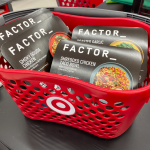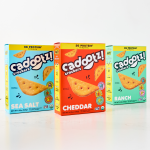Survey Results Reveal Manufacturers’ Support for HPP
A recent survey of over 50 refrigerated and frozen food and beverage companies by high-pressure processing (HPP) service provider Universal Pasteurization revealed broad familiarity and general satisfaction with HPP, a non-thermal process used to inactivate harmful bacteria and extend product shelf life.
The anonymous survey, conducted in September and October, asked participants to answer 15 questions about HPP safety, quality and efficacy, and to compare HPP to other pasteurization methods.
All respondents were based in the U.S. and self-identified themselves as being currently employed by a business that produces refrigerated or frozen foods.

Respondents were not asked to specify the size of their organization in terms of sales, revenues, employees or other such figures. Universal has opted not to share individual responses or raw survey data publicly.
Mark A. Duffy, CEO of Universal Pasteurization, explained that respondents were largely positive about HPP. In response to a survey question about the potential barriers of HPP, the most common response was the cost of equipment.
“Concerns that surfaced generally related to the newness of the technology in terms of being adopted by the industry,” he said, noting a survey participant who explained that their company was waiting for more information and performance data on HPP before embracing the method over traditional pasteurization techniques. “Some other comments included questions about cost-saving, a worry that consumers wouldn’t understand the technology or a desire to understand more about how FDA views HPP as a process.”
In response to a question that asked “How familiar are you with high pressure processing?,” 59 percent of participants answered at least somewhat familiar with HPP. Fifty-seven percent of those surveyed reported that they would characterize their company’s use of HPP as either “some,” “substantial” or “growing.”
One question asked “On a scale of 1-5 (five being best), how would you rank the major benefits of high pressure processing?” Out of six possible answers, two — “Makes food safer by killing pathogens” and “Extends shelf life” — scored on average above a 4 on the 5-point scale. The remaining responses, in descending order, were “Pasteurizes products,” “Preserves nutrients,” and “Reduces food waste.”
For a question about the potential barriers to more HPP use, cost of equipment and cost of service were cited as the primary issues. The same question also asked participants to consider proximity to manufacturing, speed, economic pressures and awareness.
The survey also contained three questions asking participants to rate HPP and alternative pasteurization methods for impact on food quality, food safety and food waste. Those methods included ultra-high temperature (UHT), high temp, short time (HTST), low temp, long time (LTLT), pulsed electric field (PEF), ultraviolet radiation (UV) and membrane filtration.
Out of a five-point scale, HPP scored highest for food quality, earning an average of 3.85 points. For positive impact on food waste, HPP received more five-star ratings than any other technology, earning a score of 3.62.
On the question of food safety, HPP finished second, earning a score of 3.83 compared to 3.95 for UHT.
The FDA’s stance on HPP has been a source of concern and confusion for low-acid juice manufacturers in recent years. HPP is not an accepted method of destroying spores of certain harmful microorganisms, such as Clostridium botulinum spores, that can grow in juices with a pH level above 4.6.
Duffy noted that “As things stand today, FDA statements concerning low-acid juices are guidelines in need of additional clarification, not explicit regulations per se.”
Duffy said no respondents specifically cited any safety concerns over HPP and low-acid juices, aside from one respondent who said that ensuring worker safety when handling HPP equipment was a top priority.

















